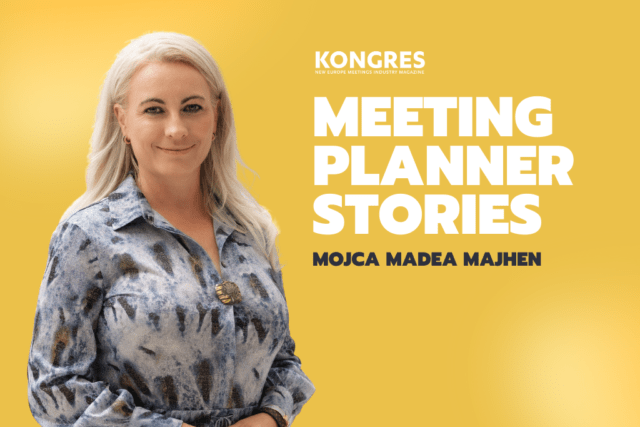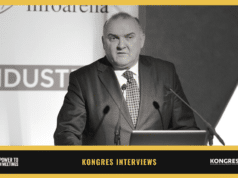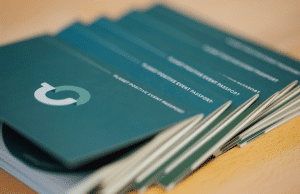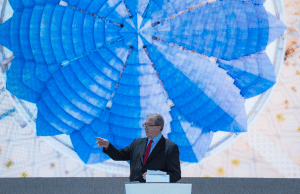As everything is settling back into its pre-coronavirus tracks, the meetings industry is still waiting for the situation to normalize itself. Lifted regulations will not bring back business like nothing has happened, yet everyone is supposed to survive by their own means. We wanted to hear how meeting planners are coping with the situation, what COVID-19 means for their businesses and how they see the future of events.
MOJCA MADEA MAJHEN, Founder and Managing Director at Paideia Events
Q: How would you introduce yourself to someone who doesn’t know you?
The first impression is always proportional to the circumstances in which people meet, I find it difficult to describe how I would introduce myself to someone, I let people get to know me on their own, preferably by my actions and not by descriptions. When I talk about business, I talk a little, but I try to say as much as possible. I’m not a good salesperson myself, but I certainly sell others or the story of the event well.
Q: What is your love story with the world of events?
I wouldn’t say it’s a love story. It is a coincidence that the company owner, where I was working as the marketing director, gave me the task to organize a Midsummer Night event for business partners and friends. It turned out that the expectations were high, and the biggest challenge was to realize them. The event was placed at his homestead, at the top of a hill, in the middle of the woods, yet with I think at least 200 guests, 80 philharmonics and a soprano singer, served dinner and extensive logistics. With the first event, I set myself extremely high standards. Which I have been perfecting for the last 12 years, my goal and vision drive me, and we try to surpass them at our company.
Q: How has the coronavirus epidemic affected your business and survival?
Given that we were dealing with events and related services, we already felt uncertainty at the beginning of February with our clients and in the market in general. Literally overnight, within a few working days, it became clear that there would be no events in March and April this year, during the first week of quarantine (between 16 and 20 March) clients cancelled all events until the summer and later also in the late summer and September. Currently, we have some confirmations for the fall, but only time will tell if we will realize them. We have been working with competitors for years and whoever won the bid knew when they would hold the event. Today, this means nothing, everything can be cancelled a week before the event due to a virus, and we bear the entire costs. This is the biggest problem.
Q: How long can you endure the quarantine as a company and as an individual?
We, the companies, are honestly already past the point that we were able to endure. Despite a good past year, you can imagine what it is like if you only realize a few % of the expected realization in the first half of the year. The first couple of months of the year are the worst in terms of event planning. The first quality period for corporate events is from March to July.
Personally, I am mentally stable and can sustain the quarantine for a long time, certainly longer than two and a half months. My husband and I come from strong and connected families, and we also have a family of our own. Therefore, quarantine for me, next to business, was mostly a household challenge and I did very well. It is certainly easier to survive quarantine in the springtime than it will be in the autumn or winter.
THE COUNTRY’S PROBLEM IS THAT NICHE INDUSTRIES WERE AT FIRST NOT RECOGNIZED AT ALL
Q: How satisfied are you with the country’s measures so far? What could be improved upon?
The country’s problem is that niche industries, such as the meetings industry (the term was only formed in March) were at first not recognized at all. I’m not just talking about companies that organize events here, but also about all the subcontractors who provide sound, light, decorations, stage layouts, material designers, performers, all the support staff, caterers and last but not least the locations where we hold events. I immediately suggested that companies receive some kind of helicopter money, which would help overcome liquidity problems. It is extremely difficult to apply for a bridging loan as a company that has no income. The government has offered a guarantee in the height of 80 % of the loan value, but I think it is only in the last week that some commercial banks have started to deal with these matters. Those who need the money may be able to get it in the summer or autumn, for many it will be too late.
With the introduction of waiting at home and a subsidy, they relieved the companies of course, but if a company that is now completely stagnant has to pay out salaries for two and a half months and gets a reimbursement of 80 % that is problematic. Even the largest companies are not able to do this. Unemployment has risen, and in my estimation, the unemployment rate will rise by at least half as much by autumn.
Q: How will the virus change the essence of organizing events – socializing?
We, humans, are social beings and the socializing limitations in the broadest sense have a bad effect on people. In the post-virus period, event planners have changed a few norms. Events will be more segmented, perhaps an event that would have been a single event previously will now be divided into several smaller ones, corporate clients will probably choose their guests more carefully and thoughtfully.
As the event organizer, we also take care of the list of attendees in accordance with GDPR and electronically record attendance at the event. In the event of an infection, we can immediately inform everyone who was present at the event – I hope we will not need this, but we must be prepared.
In the second half of June, we conducted an event for selected clients at the City Museum with hand disinfection, maintaining a safety distance between guests, a new way of serving food and drinks. And most events taking place over the next year are likely to look like this. Self-service buffets and hand-served food are unsuitable during this period, as it is necessary to limit contact in this segment as well, but this means more logistical preparations, more service staff, which is associated with higher costs. As long as the virus is treated as it is now, we will have to stick to the regulations. When it sounds out or a vaccine is developed, we will socialize as we were used to before.
Q: When do you think we will be able to move with full steam ahead?
Any predictions are ungrateful, hopefully at the beginning of next year.
Q: What comes after the pandemic?
The epidemic is a challenge, let’s call it an event that has slightly changed the course of our lives this year. Perhaps I am answering the first question here; I am a positive person, with many ideas, but I only talk about them when I know that they can be put into practice. New situations will certainly come, we humans are social beings, so we will also socialize as we have until the end of 2019.














